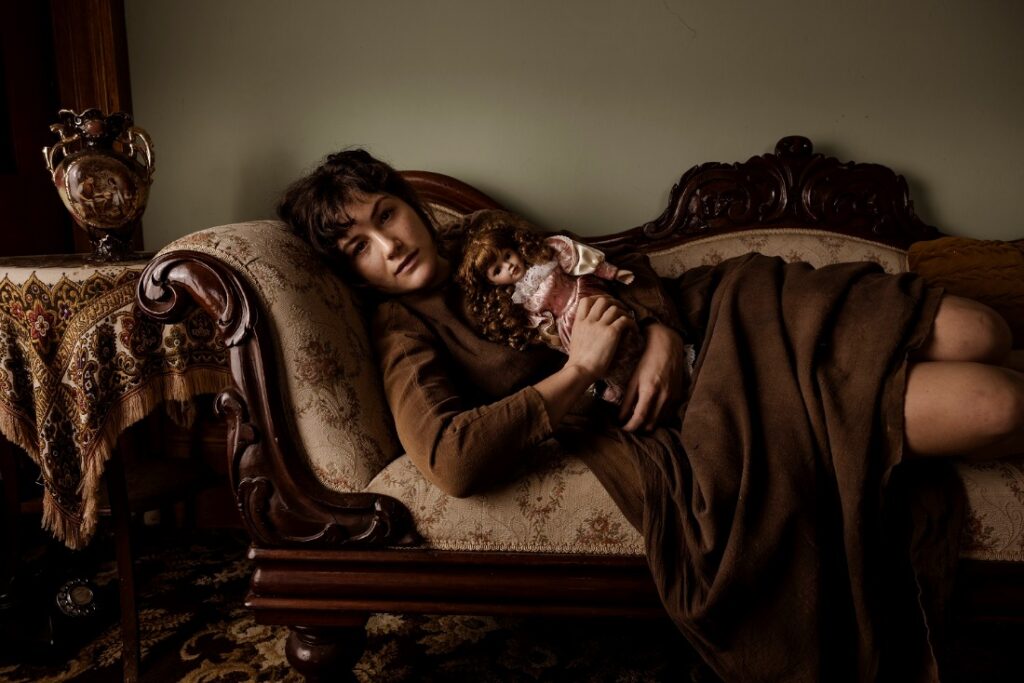
Bronwen Coleman, Uncle Vanya and Timeless Resonance
This June, St Kilda’s own Theatre Works will play host to a landmark in modern theatre, Anton Chekhov’s ‘Uncle Vanya’. Often considered one of the greatest playwrights of all time, Chekhov created work that transcends time and is as relevant today as it was in the late 19th century.
‘Uncle Vanya’ explores the angst, grief, and jealousy of Professor Serebryakov, his new (and much younger) wife, and his extended family. Upon returning to his family’s country home, Professor Serebryakov announces his proposed intention to sell the property, which elicits a flooding of repressed resentment from those who call it their home.
Originally penned by Chekhov in 1898, ‘Uncle Vanya’ held its first performance at the Moscow Art Theatre the following year. In its 124-year history, the play has been performed multiple times, both on stage and screen – including (but by no means limited to) a stage and screen adaptation by the legendary Laurence Olivier in 1962-63.
After a highly successful run in New York, the Anthropocene Play Company are bringing the acclaimed production – with new translation from Richard Nelson, Richard Pevear, and Larissa Volokhonsky – to Australia for an exclusive 10 show season at St Kilda’s Theatre Works.
Under the direction of the New York Actors Studio member Bronwen Coleman, the Anthropocene Play Company endeavours to bring classic works of the global stage to life in a visceral and accessible way for Australian audiences. This appears to be accurate in the case of ‘Uncle Vanya’.
In anticipation of their June season, director Bronwen Coleman spoke to Theatre Haus about what Australian audiences should expect from Anthropocene’s production of ‘Uncle Vanya’, and why she believes the play has stood the test of time.
“[It’s] a lively, funny and sometimes heartbreaking story about family life. Set in 1897, ‘Uncle Vanya’ is a masterwork from… Chekhov,” Coleman says. “We’re using a brand-new translation, which is faithful to the original while also being super accessible.”
“There is music, amazing acting, and a gorgeous set by Harry Gill. Alongside Harry’s delightful period costumes, I’m using contemporary elements (like the music, and even elements of the character’s behaviour) to bring the play to life for current audiences.”
While affirming Chekhov’s play is undeniably a classic, Coleman notes that the source material allows room for interpretation when it comes to individual productions.
“The translation is new and is from New York,” Coleman states. “The production, however, is ours.”
“I imagine if you saw the two together – the original production and ours – they’d be very different. We’re using our own accents, and of course bringing our own, particular Australian understanding to the material.”
It is through such accessibility that Coleman believes ‘Uncle Vanya’ has continued to captivate audiences for well over a century. Noting that many people would consider it to be one of the greatest plays ever written, Coleman attributes much of its praise to its relatability and success in portraying the human condition.
“I think the reason it continues to resonate is because of the way it deals with the sort of identifiable human dilemma we can all relate to, in an incredibly nuanced and complex way,” Coleman explains.
“For example, the crazy rollercoaster of emotions you experience when the object of your love is oblivious or what it feels like to be taken for granted by a family member you care about and have had on a pedestal for years.”
For Coleman, one of the greatest joys of directing ‘Uncle Vanya’ is hearing and watching new audience’s reactions to Chekhov’s work.
“The play very much speaks for itself,” Coleman explains. “[A] foreknowledge of the text isn’t needed to enjoy it.”
“It’s actually a great pleasure to expose people to the play for the first time. After the previews we asked audience members what they thought,” Coleman continues. “People said things like, ‘It made me contemplate a lot of things, it made me think about my life.’”
Coleman continues by saying that play can be enjoyed by people regardless of their age – perhaps adding another reason as to why it has been successful for so long.
“It’s on the VCE Literature List this year [and] we’ve already had some students in to see the show,” Coleman says. “Our hope is they’ll fall in love with Chekhov as we have.”
When asked what she hopes audiences take away from Anthropocene Play Company’s production of ‘Uncle Vanya’, Coleman reflects upon a quote from Pulitzer Prize-winning poet Mary Oliver.
“We’re here for a limited time,” Coleman explains. “Are you really doing what you want with your life? If not, what’s stopping you? What do you want your legacy to be?”
“This is what I hope people will think about after seeing the play: ‘What is it you plan to do with your one wild and precious life?’”
Whether you are a Chekhov aficionado or a first time viewer, Anthropocene Play Company’s ‘Uncle Vanya’ promises to provide audiences with a thought-provoking experience that will likely stay with them long after the curtain closes.
‘Uncle Vanya’ performs at St Kilda’s Theatre Works from 7 – 17 June 2023. Tickets can be purchased from the Theatre’s website. For more information about this or other shows a part of Anthropocene Play Company, visit their website.






